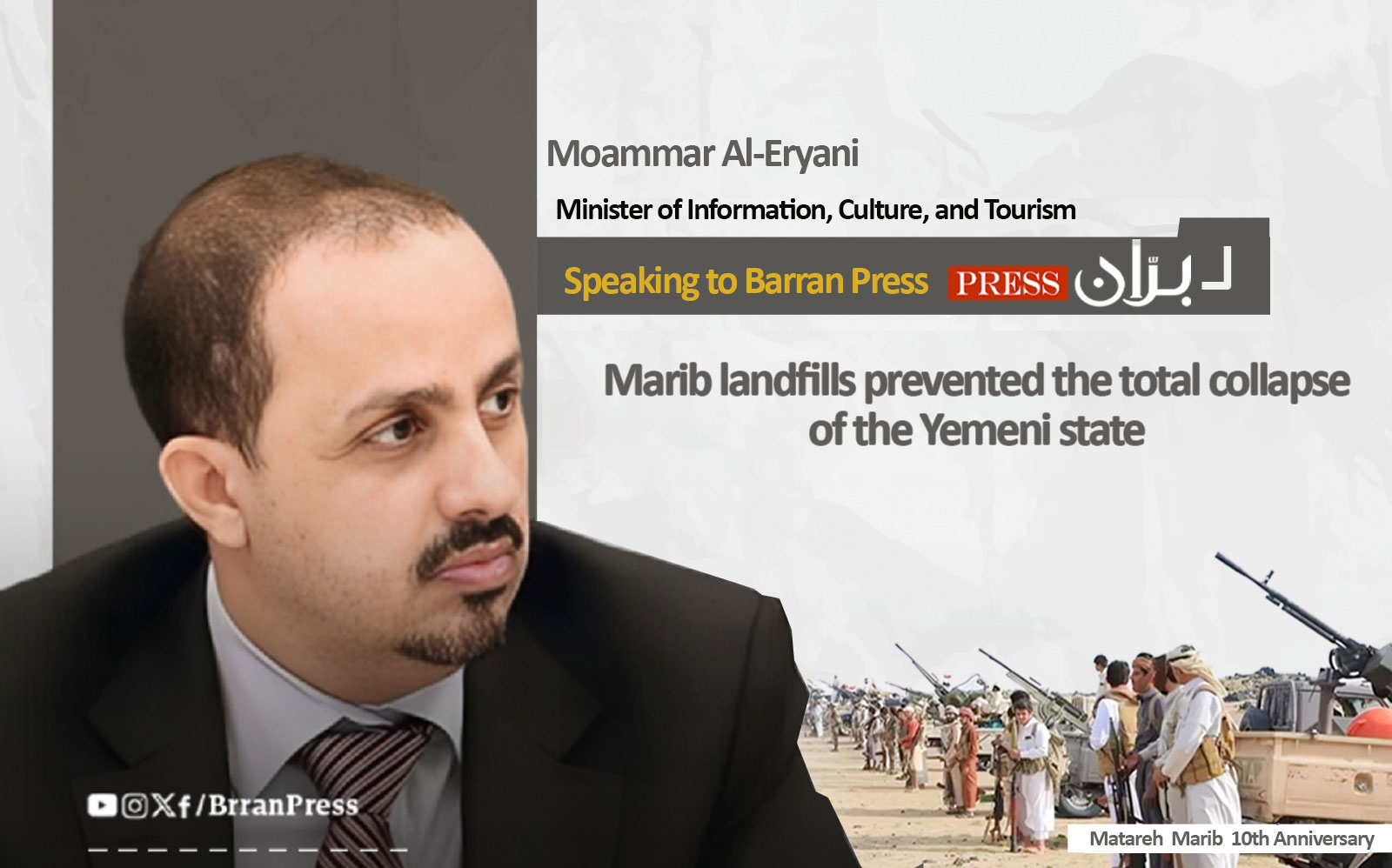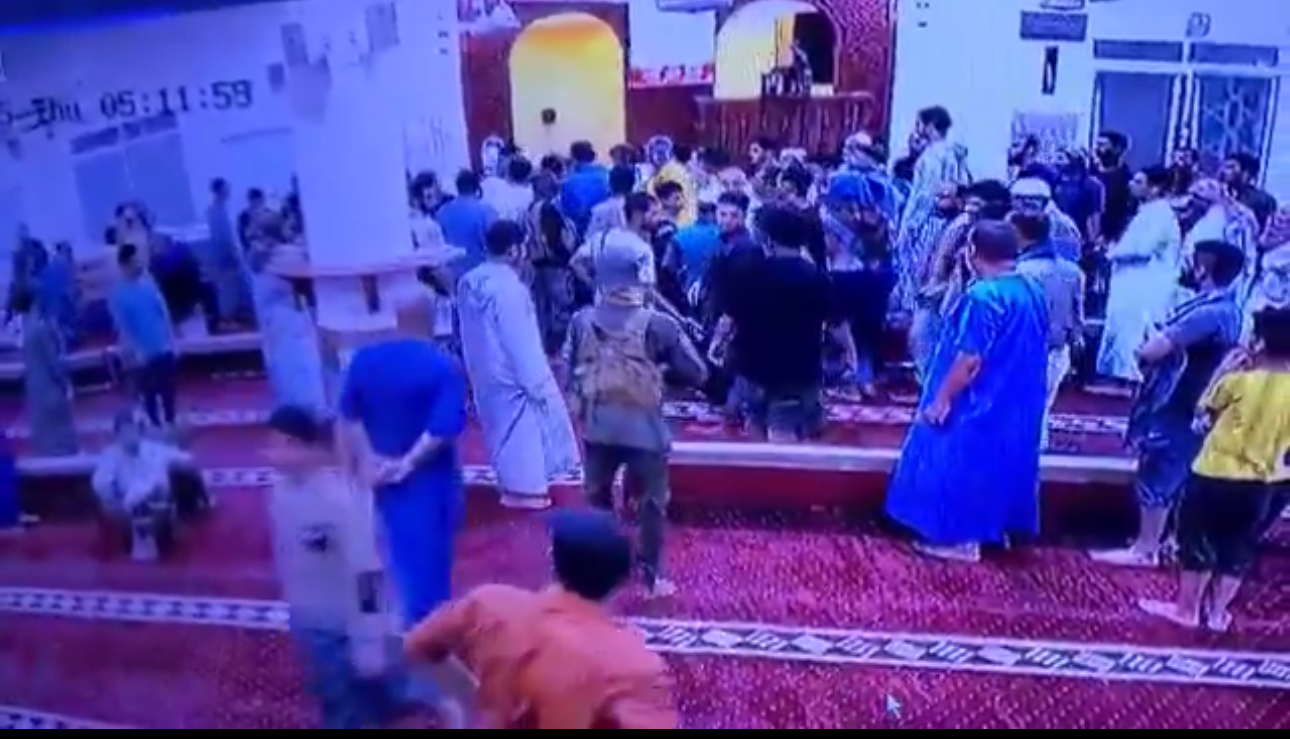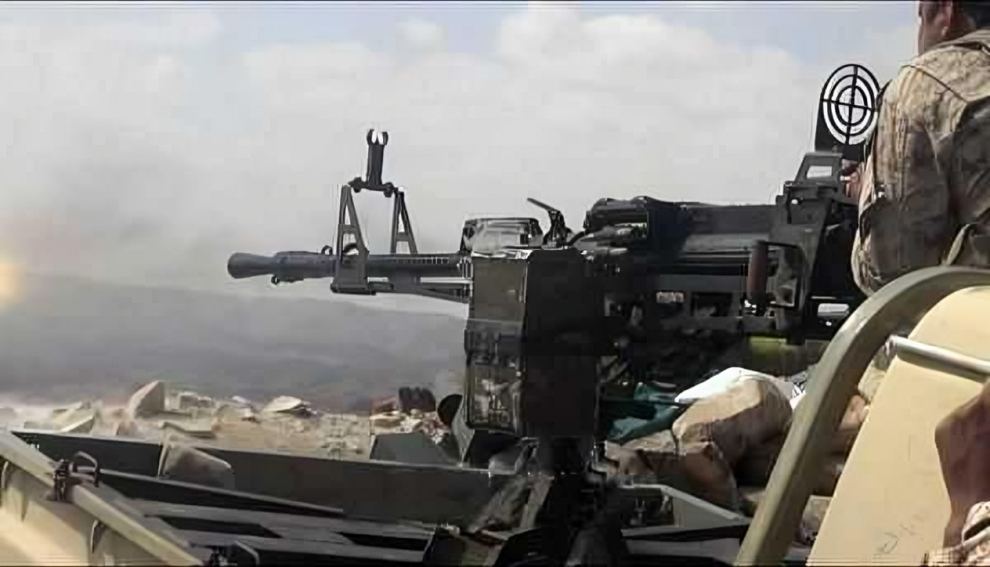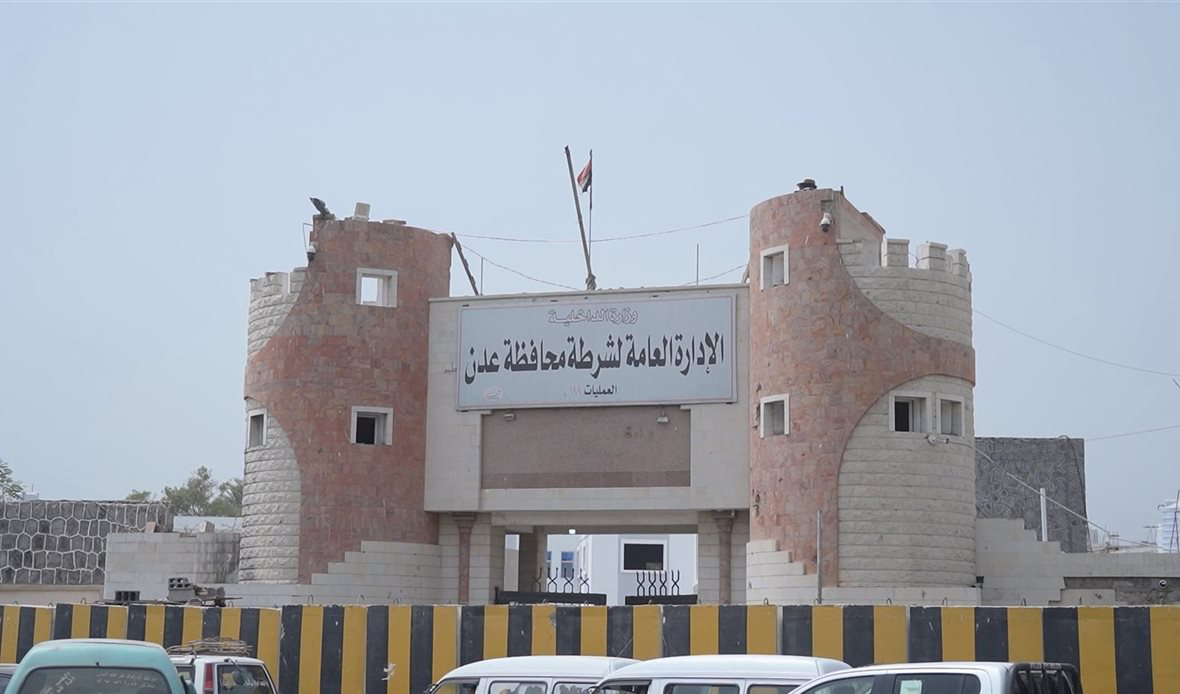
Barran Press
Information, Culture, and Tourism Minister Moammar Al-Eryani has stated that the establishment of the Marib's Matareh on September 18, 2014, marked a pivotal moment in the course of events, preventing the complete collapse of the Yemeni state and igniting resistance across the country.
In a special interview with "Bran Press" coinciding with the tenth anniversary of the Marib's Matareh, Al-Eryani added, "The declaration by the tribes of Marib to stand alongside the local authorities, political components, the army, and security forces in confronting the Iranian expansionist project and its Houthi tool... is not surprising for the people of this heroic governorate."
He highlighted that Marib has "throughout history, recorded honorable stances in upholding the values of the state and defending national constants."
Al-Eryani described the "stance and performance of the local authority in Marib under the leadership of the heroic Major General Sultan bin Ali Al-Arada, a member of the Presidential Leadership Council and governor of the province, as well as the security and military forces... as advanced, courageous, and honorable." He explained that this "embodies the state of awareness at the official and popular levels, and the national and historical responsibility that every official, citizen, officer, and soldier in the armed forces and security should possess."
Regarding the stance of political and national components in Marib, he said it was "a natural extension and expression of the will of the people of this steadfast governorate, and also a reflection of the national consensus resisting the coup project and its extremist ideas alien to our Yemeni people."
Al-Eryani stated that Marib has become "a fortress of resilience and defiance, an icon of heroism and sacrifice, an example of adherence to constitutional legitimacy, the rule of law, and the defense of the revolution, the republic, and national gains, and a model for what other governorates should be."
According to Al-Eryani, one of the most important lessons learned from this "national epic" is that "Yemenis, through their unity, solidarity, and cohesion, are capable of defeating the Houthi militia, confronting various threats, defending their principles, and preserving their national gains."
The Information Minister extended his "greetings and appreciation" to the local authority in Marib under the leadership of Major General Sultan Al-Arada, the sheikhs, tribes, and people of the governorate, the political components, and the security and military forces stationed along the battlefronts. He stressed the need for "further cohesion and vigilance to confront the Houthi militia's attempts to divide and undermine the national unity."
On September 18, 2014, the tribes in Marib established armed popular camps known as "Al-Matareh" in the northern, western, and southern outskirts to counter the escalating Houthi offensive aimed at seizing control of the province by force.
This move, a traditional tribal custom for confronting threats, came after two months of Houthi mobilization and attacks on tribesmen in the border areas with the governorates of Al-Jawf and Sana'a. This followed their capture of the city of Amran in July 2014 and their advance towards the capital Sana'a, culminating in its fall on September 21, 2014.
Excerpt from the interview:
- How did you observe the stance and performance of the local authority in Marib Governorate, as well as the security and military forces, during their confrontation with the Houthis in 2014, and their role in unifying efforts to defend the governorate and protect sovereign institutions and vital facilities in the governorate?
The stance and performance of the local authority in Marib Governorate under the leadership of His Excellency Major General Sultan bin Ali Al-Arada, a member of the Presidential Leadership Council and governor of Marib, as well as the security and military forces, in confronting the Iranian expansionist project and the Houthi coup in 2014, were advanced, courageous, and honorable. This embodies the state of awareness at the official and popular levels, and the national and historical responsibility that every official, citizen, officer, and soldier in the armed forces and security should possess.
This is a model for what state institutions and society should be like in other governorates. If they had taken the same national stance, the country would not have reached its current state. All this energy and potential would not have been wasted during 10 years of war, and parts of the Yemeni geography would not have become, unfortunately, a stage for the Houthi militia's mischief and Iranian interference.
I am not exaggerating when I say that the establishment of the Marib's Matareh on September 18, 2014, was a turning point in the course of events. It prevented the complete collapse of the Yemeni state, ignited resistance across the country, and led to many changes on the national scene since the coup. It will remain a source of pride and inspiration for future generations.
- What are the implications of the Marib tribes’ position rejecting the Houthi coup against the legitimate government? How did this position give hope to the Yemenis and inspire them to resist? What are the lessons learned from this position?
The declaration by Marib tribes to stand with the local authorities, political components, and the army and security forces in confronting the Iranian expansionist project and its Houthi instrument, transcending their political differences and feuds, and aligning themselves behind the constitutional legitimacy to defend national and Arab gains, and sacrificing countless martyrs in this cause, is not surprising for the sons of this heroic governorate. Throughout history, they have consistently demonstrated a strong commitment to state values and national principles.
One of the most important lessons learned from this national epic is that Yemenis, united, cohesive, and interconnected, are capable of defeating the Houthi militia, confronting various threats, upholding their values, and safeguarding their national gains.
Marib served as a turning point in the battle against the coup, providing significant momentum for the formation of popular resistance and pushing back the Houthi militia from most Yemeni regions.
- How did you observe the smear campaigns and incitement targeting Marib's people during the Houthi attack on the governorate? What were their objectives?
The fierce assault on Marib by the Houthi militia during that period was not unexpected. It was the last bastion of the republic, and its fall would pave the way for the return of the defunct Imamate rule and eliminate any hope for resistance against the coup.
The aim of these campaigns was to undermine the morale of the heroes among the sheiks, tribes, and people of the governorate, disrupt their ranks, and distort their struggle and sacrifices.
However, the events witnessed in the country since 2014 have restored the importance of Marib and its valiant resistance. It has become a model for the presence of the state and its institutions, establishing security and stability, launching development initiatives, and fostering coexistence among Yemenis from various regions and political and social backgrounds.
- What is your assessment of the stance of Marib's political parties, which disagreed with their central leadership in Sana'a and chose to confront the Houthi coup and defend the governorate and the state alongside the tribes and local authorities?
The position of the political and national components in the Marib governorate reflects the natural expression of the will of its steadfast people. It also embodies the national consensus resisting the coup project and its extremist ideas, which are alien to the Yemeni people.
- How can we benefit from the Marib experience, where tribes, political parties, and local authority leadership united to defend the governorate and prevent its fall to the militia, presenting a living model of the state?
Marib, a fortress of resilience and defiance, has become an icon of heroism and sacrifice, an example of upholding constitutional legitimacy, the rule of law, defending the revolution, the republic, and national gains. It serves as a model for other governorates to rally behind the state, fostering cohesion and integration between the local authority, other civil, security, and military state institutions, political and social components, and citizens in confronting threats targeting the nation and its gains, maintaining security, and stability.
- Your message to Marib, its tribes, parties, and local authority on the 10th anniversary of their national stance in defense of the state, the republican system, national identity, and the values of peace and coexistence?
I take this opportunity to extend my greetings and appreciation to the local authority in Marib governorate, led by His Excellency Major General Sultan al-Arada, a member of the Presidential Leadership Council and governor of the governorate, the sheikhs, tribes, and heroic people of the governorate, the political components, and the security and military forces stationed on various fronts of honor and glory along the battle lines. Without their bravery, resilience, and the heroic epics they have written, the first line of defense and the last bastion of the Yemeni republic would have collapsed.
I commend their continued unity and vigilance in confronting the Houthi militia's attempts to divide and disrupt the national ranks. They must not allow anyone to compromise the security and stability of Marib, which has protected Yemen from falling into the clutches of the Iranian expansionist project. Marib continues to offer hope to all Yemenis for the recovery of every inch of national territory from the Imamate militia, in gratitude for the sacrifices of this heroic governorate, its valiant men, and the righteous martyrs who have given their lives in defense of Yemen, its identity, dignity, and honor.





